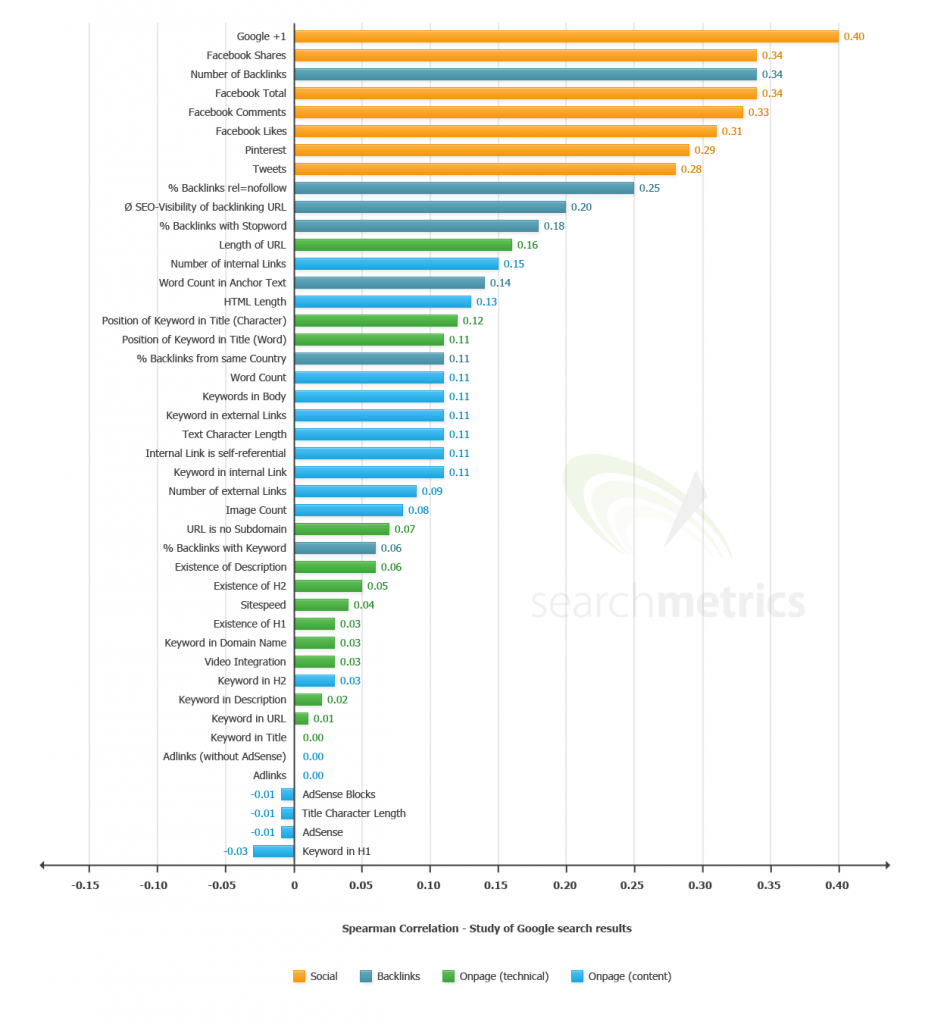By Yvette Pistorio
When I started working in social media (just a mere two years ago) I never even heard of search engine optimization.
As embarrassing as it is to admit it, it’s true.
Judge all you want, but I’ve come to terms with my ignorance!
Back then my focus was learning the different ways businesses were using social media. How were they building communities? How did they get people to comment on their Facebook page or chat with them on Twitter?
Today, however, social media and SEO together makes perfect sense to me, and is a regular part of my job.
How Social Media and SEO Work Together
SEO is about optimizing content to appear higher in search rankings. It could be on your website, on your blog, or on your corporate social media accounts. It plays an important critical role in driving traffic to your website.
Social media values are becoming more influential as companies try to earn better search results.
A new infographic from Searchmetrics shows seven of the 10 most important factors in SEO ranking now come from social media.
The bottom line? When you integrate SEO and social, you’ll boost your search engine relevancy.
How to Integrate Social Media and SEO
To integrate social media and SEO, you need a few things in place: An active social media presence, links from your website to your social networks and vice versa, and social share buttons on your website or blog to allow people to easily share your content.
What else do you need? Here are some suggestions.
Create a Content Strategy
You need a solid content strategy “which coordinates your marketing and content efforts into one cohesive plan, and is supported by engaging your social media audiences rather than only pushing your content on them,” said Jayson Demers in a Huffington Post article.
Research and Determine Your Keywords
Look at which keywords drive traffic to your website, so you can create content that targets them (though don’t ‘keyword spam’ – your content needs to be high quality, keywords or no keywords!) There are a variety of tools from Google you can use for basic keyword research. After you source them, I love Lee Odden’s suggestion of creating a “keyword glossary” – a handy list of keywords as well as long-tail keyword phrases.
Determine Social Keywords
Unfortunately this isn’t as easy as regular keyword research. Like anything worthwhile, it takes more work. Take advantage of free tools such as SocialMention, “that offer a social search function which provides a list of keywords most often found in tweets, comments and other social content based on your query,” Odden adds. Then of course, add these to your keyword glossary.
Add Value
Social media needs active participation. Posting regularly, commenting, and sharing posts will create discussion, and engage your fans and followers. Look at which social posts are most popular so you can begin to create content you know your audience wants to see. Use free tools such as Facebook Insights and Buffer, or paid tools such as Social Bro to get this information.
Be Active
Please for the love of all that is holy, maintain your social presence! Nothing is worse than going to check out a brand’s Twitter handle only to see they haven’t tweeted…ever!
Share content daily. How many times a day and at what time of the day? I hate to say it, but it depends on your industry.
Another thing to keep in mind: Your social profiles are about you AND your audience. It’s not all about you, so make sure you’re sharing links to other relevant and informative content.
SEO and social media are both content driven. They both help build brand awareness, excite your community, and drive leads. In order to integrate social media and SEO, remember to optimize for human beings first, search engines second.
A version of this post originally appeared on the Wood Street blog.

